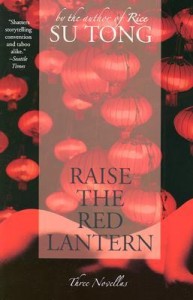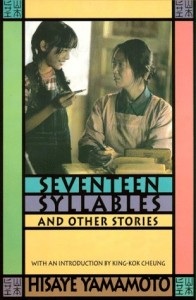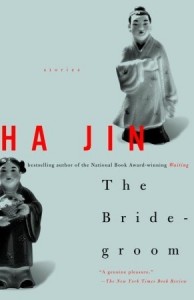A writing professor once advised me to keep writing fresh and to examine the words you use—tears don’t ever really roll down someone’s face. But how can you reexamine every word or phrase you use and still have time to write? Sometimes it helps to look at things from a new perspective and this week Haruki Murakami helped me do just that with The Wind-Up Bird Chronicle.
When I read “network of red lines” as a description of the narrator’s bloodshot eyes, my writing spidey-sense perked up. “Bloodshot” is an easy word. Too easy. You can say “spider web” but that stands out against nearly any paragraph. I loved “network of red lines.” It was concise and vivid and I could picture it and it also didn’t have to interrupt the flow. Except I wanted it to because it made me think about freshening my own descriptions.
A note on translation here: I don’t read Japanese, so I will never know exactly what words Murakami uses, and I am taking for granted that his translator has not run away with the story. Also, “network of red lines” could be the way bloodshot eyes are standardly described in Japanese. Regardless, it was new to me and I loved it.
I read Murakami chiefly for fun, though he is a wonderful and imaginative writer. I am grateful to him for reminding me that language is infinite and even one fresh examination can spawn wonder. I’m off to see if I can spawn some fresh imagery in my own writing. Just as soon as I finish this fantastic book.
If this review made you want to read the book, pick up a copy of The Wind-Up Bird Chronicle from Bookshop.org. Your purchase keeps indie booksellers in business and I receive a commission.
 Su Tong creates a world of magic and mystery in the title novella of Raise the Red Lantern. Though we are never certain if the magic is real or imagined by Lotus, it feels authentic. Su blends the real with the ethereal so gently that even the harshest skeptic can enjoy the mystical elements of the story.
Su Tong creates a world of magic and mystery in the title novella of Raise the Red Lantern. Though we are never certain if the magic is real or imagined by Lotus, it feels authentic. Su blends the real with the ethereal so gently that even the harshest skeptic can enjoy the mystical elements of the story. Family tension seethes under the surface of the title story of Hisaye Yamamoto’s story collection Seventeen Syllables. Mrs. Hayashi has given up her passions long ago for a life of quiet suffering. When she discovers an interest in and a talent for haiku, she adds heat to the simmering boil of her family life. And yet Yamamoto conveys the initial familial tension and ensuing boil over through the careful, almost quiet, use of displaced description and contrast.
Family tension seethes under the surface of the title story of Hisaye Yamamoto’s story collection Seventeen Syllables. Mrs. Hayashi has given up her passions long ago for a life of quiet suffering. When she discovers an interest in and a talent for haiku, she adds heat to the simmering boil of her family life. And yet Yamamoto conveys the initial familial tension and ensuing boil over through the careful, almost quiet, use of displaced description and contrast. In Ha Jin’s collection of stories, The Bridegroom, the protagonists are powerless to effect any real change in their circumstance. At best they can hope for vengeance by spreading disease or peeing on purslanes. Ha creates this feeling of constraint and hopelessness in “Saboteur” by tightly controlling his delivery of words.
In Ha Jin’s collection of stories, The Bridegroom, the protagonists are powerless to effect any real change in their circumstance. At best they can hope for vengeance by spreading disease or peeing on purslanes. Ha creates this feeling of constraint and hopelessness in “Saboteur” by tightly controlling his delivery of words.